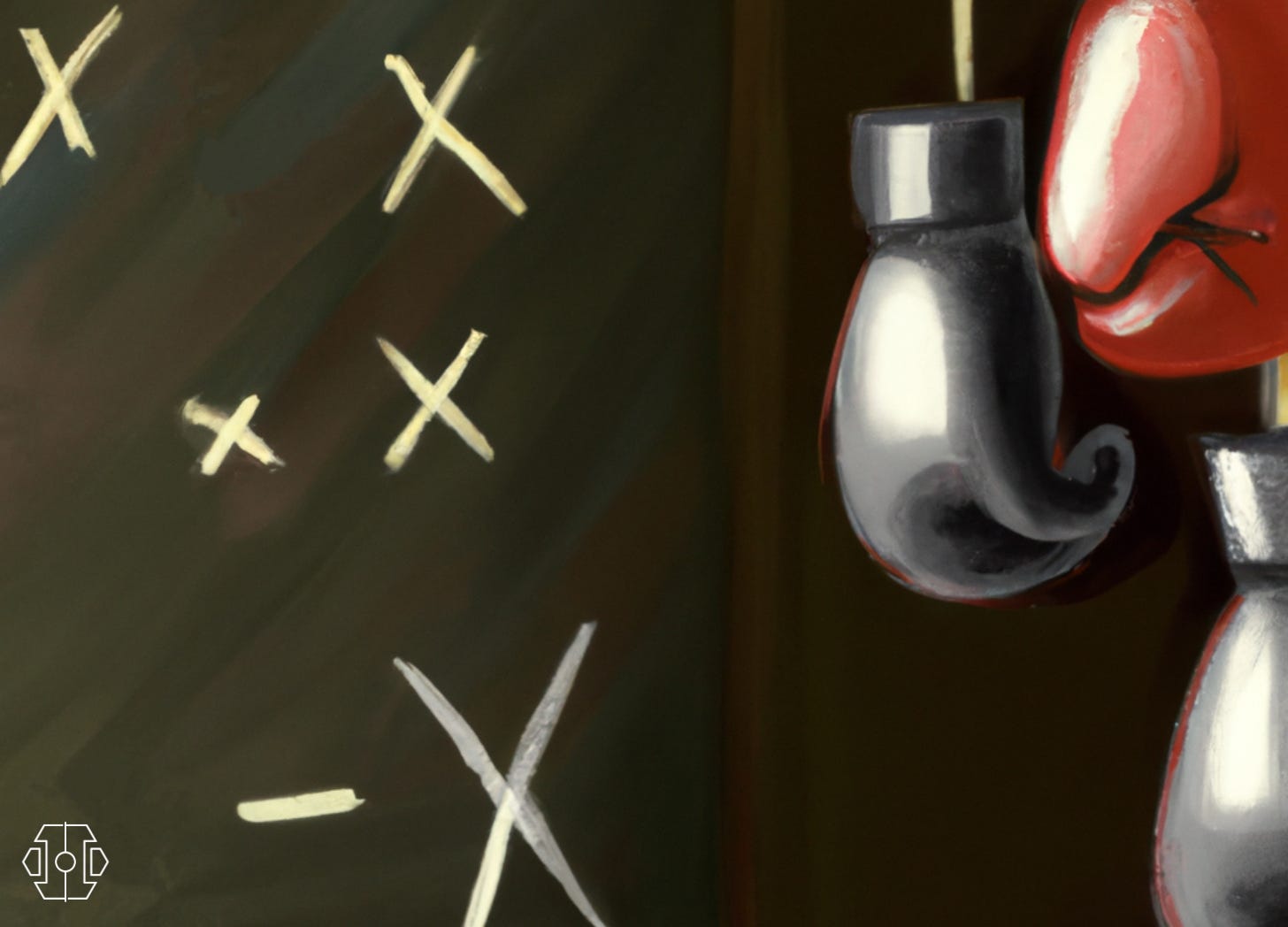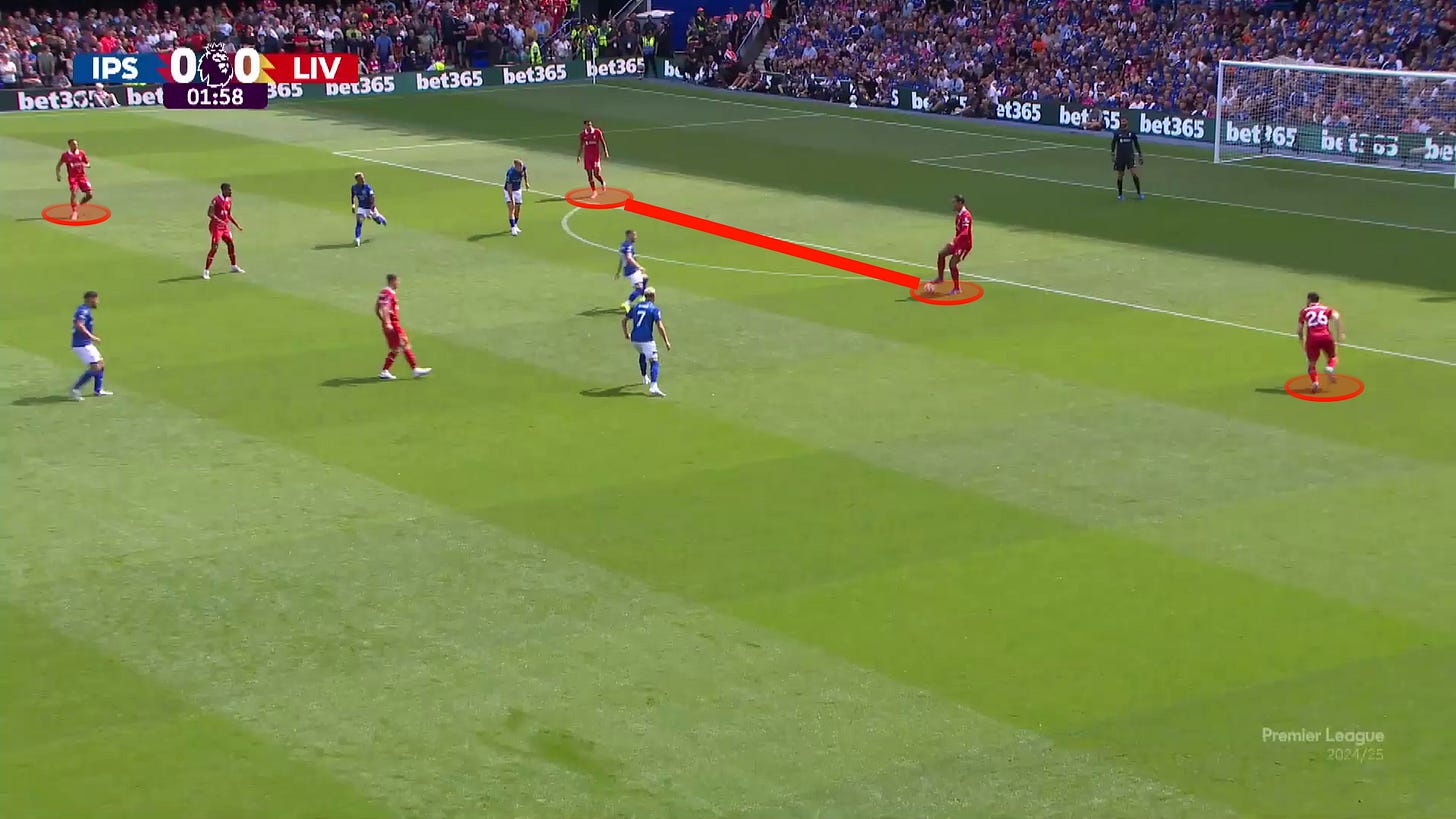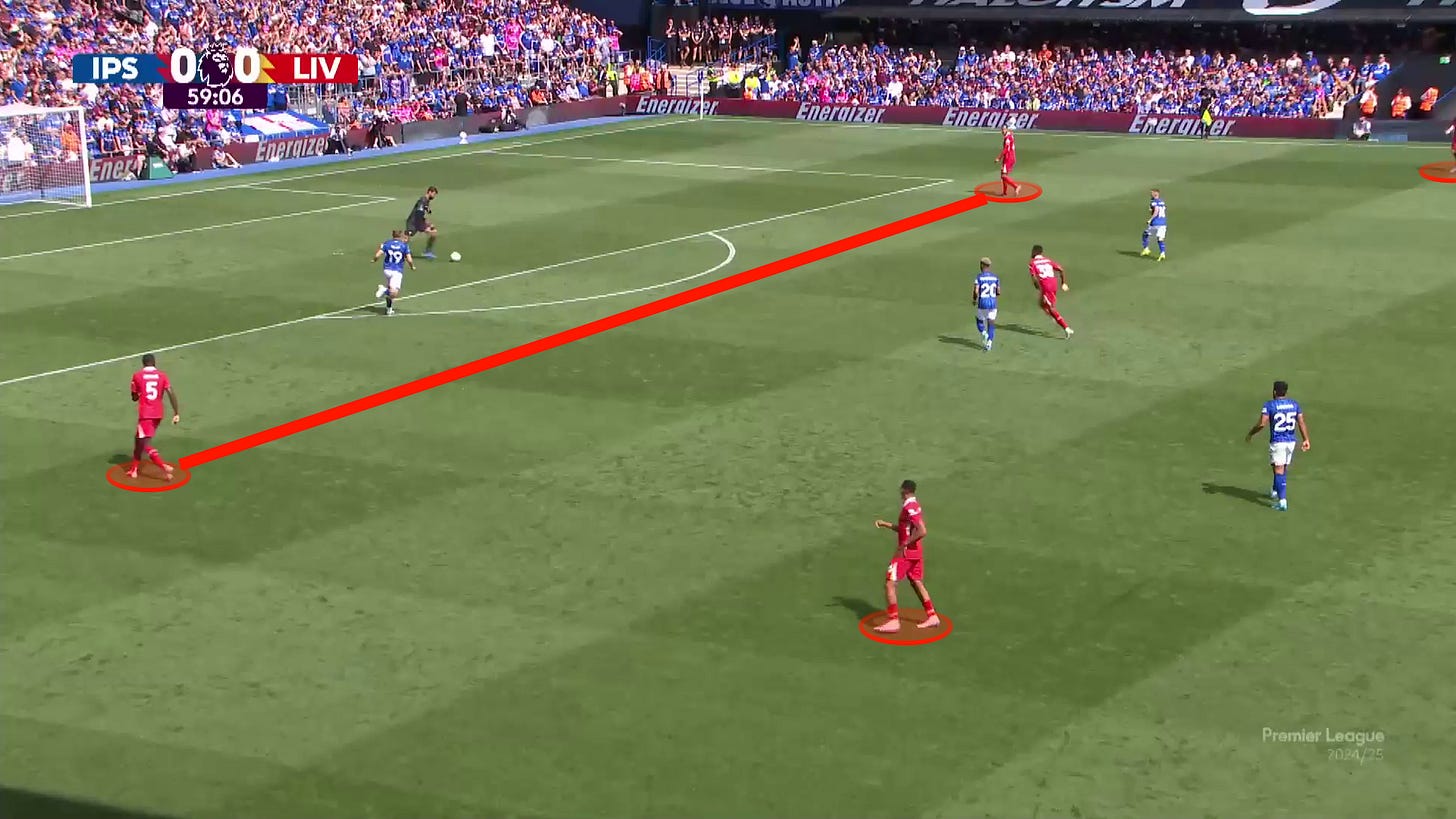Who Cares About Tactics?
"We don't need to talk about tactics if we don't win our duels," said Arne Slot after Liverpool beat Ipswich Town.
Nobody hates a cliché more than I do. And if you’re subscribed to this Substack, you probably hate them too.
Football is packed full of overused phrases and familiar expressions, and some pundits in the sport lean on them far more than others. How many times have you heard a manager suggest that every game is a cup final? How many times have you heard a former Manchester United player suggest that nobody is bigger than the club?
They are everywhere. I try to avoid them — which isn’t always easy — and I make that conscious effort because most of them are rooted in complete nonsense.
According to your cliché connoisseur, 2-0 is the most dangerous scoreline in football. It isn’t. According to your cliché connoisseur, the table never lies. It does, all the time.
The guys who carry their trusty pocketbook of clichés around with them can be pretty dull, but sometimes — albeit not that often — they are right.
Some people aren’t that interested in tactics, and that’s fine. The strategic side of the sport isn’t for everyone, but matters on the pitch — both positive and negative — can often be explained by tactical factors.
The pundits who don’t care much for tactics usually ignore that side of the game and put everything down to good ol’ passion and desire. I was watching England struggle over the summer, yet at half-time, despite the team being a blatant tactical mess, the TV host said: “this isn’t about structures or systems, it’s about heart.”
*sigh*
But as much as I hate to admit it, all of those famous intangibles do matter. They matter a lot, and we saw evidence of that on the weekend as Liverpool faced Ipswich Town in their Premier League opener.
After 45 minutes of football at Portman Road, the Reds had started their new campaign pretty horribly. They had mustered just three shots, with all of them originating from outside the penalty box. For context, Liverpool averaged 10.3 efforts per half last term.
Things had to change during the interval. Ipswich were playing Premier League football for the first time in 22 years, and they looked more at ease doing it than Liverpool did.
How did Arne Slot turn the tide? He basically told his players to start kicking people, or at least that’s what he wants you to think.
"We don't need to talk about tactics if we don't win our duels," said the Reds boss once gathering with his players. He was serious, too, substituting Jarell Quansah for Ibrahima Konaté during the break purely because the former wasn’t dominant enough against Liam Delap.
“We brought in Konaté, who is a strong defender who could win a lot of one-on-one duels with the striker,” said Slot after the match when asked about what changed at half-time.
Ipswich had simply been the more aggressive side. They fought for the ball like they had some kind of vendetta against Liverpool, going man-for-man all over the pitch and picking up three yellow cards in the process.
Slot’s defenders weren’t assertive enough, and his forwards gave up too easily in their efforts to wrestle control of loose balls. To a certain extent, Liverpool kinda got bullied, winning 22 duels compared to 31 for the hosts.
Tactics matter, of course, but strategy is useless without application. The game is played by humans — not robots — after all. You have to earn the right to play. Come on, I’m allowed one cliché.
But this Substack isn’t about winning duels and getting covered in mud. Slot blamed his team’s fight for their first-half performance. Cool, but don’t let that distract you from the fact that Liverpool’s second-half success stemmed from subtle tactical tweaks, too.
The opening goal was a great example of quite a drastic structural change enforced by Slot. Throughout pre-season, Liverpool attempted to build from the back using four defenders and two midfielders, with all of them pretty narrow. You’ll know that if you’ve been following this Substack over the summer, and it kinda happened against Ipswich, too.
But after the break, something changed. Everybody at the back positioned themselves much wider, with Konaté and Virgil van Dijk splitting and Alexander-Arnold in particular pushing up, which was noted by Kieran McKenna after the game. “There weren't huge differences tactically,” said the Ipswich manager. “Trent played a little higher on the right.”
By suddenly opening up at the back, Ipswich no longer had the same hold over the Reds. They had to cover bigger spaces, as shown below, which fostered gaps emerging.
Then, in addition to that bite-sized solution, Liverpool started using the space behind Ipswich’s defence more often, with Alexander-Arnold finding Mohamed Salah with a through ball before the Egyptian assisted Diogo Jota in the centre of the box.
The first goal of the game offered an insight into those two key differences, with Slot adapting his build-up structure while encouraging his players to make use of the threats posed by Liverpool’s attackers.
“We played more balls in behind,” said the Dutchman after the game. “If the other team takes the risk of playing one-on-one and you have the likes of Salah, Jota and Díaz then use them, play the balls in behind.”
Slot used the first 45 minutes to analyse Ipswich’s plan. Once he realised exactly how they were stopping Liverpool from escaping their own defensive third, he acted. “The way the other team defends, there we have to find our answer,” he said.
“Ipswich took the risk to play one-on-one all over the pitch. Their centre-back always stepped in towards Dominik Szoboszlai. That means that you leave three defenders against three of our attackers. We need to recognise those moments and make sure that we bring those three players in dangerous situations. And that's not to keep playing short, we have to find them with direct passes or passes in behind. And that led to the fact that they didn't take that risk anymore. From that moment, we had a lot of time to play and do our build-up.”
Indeed, Liverpool’s second goal offered further evidence. Salah ends up scoring an easy tap-in, but the move got accelerated ten seconds earlier when Van Dijk bypassed the entire middle third with a diagonal pass. From there, the Reds caused chaos.
Liverpool accumulated 15 shots (!!) in the second half, five times as many as in the first 45 minutes. They amassed 43 touches in the box, compared to just seven in the first half.
So as is always the case with football, everything is connected. Liverpool needed to be more aggressive as the game progressed, and they did exactly that — winning 24 second-half duels compared to 20 for Ipswich — but there’s more to the game than kicking people.
You need to be proactive and brave with your application, sure, but having a strategic edge is paramount at this level. Slot tweaked his blueprint during the interval, and his adjustments presented his players with a platform to go and win the game.
He deserves massive credit for this one. The pressure was on. It was Liverpool’s first competitive match of the post-Klopp era. It was the first game of the new Premier League season. It was against a newly-promoted side. And he delivered.
Who cares about tactics? I do, Slot does, and you should too.








Feels good to be back reading about the actual footy not just the ifs and maybes. Good take Josh!
Observations from Ipswich match:
1) Arne's passed his first test of in-match coaching. We were tactically outmatched in 1H as Josh pointed out. At half time, Arne corrected the tactics & stressed areas for improvement. We all heard others describe his strengths as a tactician & man-manager ... nice to see it in practice!
2) Last season, Atalanta man-marked & outhustled us at Anfield & we had no answers. In many other matches last season, we "start slow" & an opponent's press or intensity results in a conceded goal. On Saturday, Ipswich took the game to us and created issues ... need to be switched-on from kickoff.
3) It was a weak opponent & a small sample size but Ryan's performance was encouraging, especially his ability to dribble by his marker to break lines. He's one of the only players we've got who can dribbles past markers & progress through carries ... let's see a repeat on Sunday!